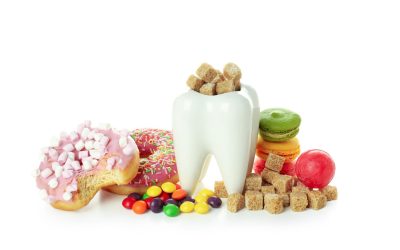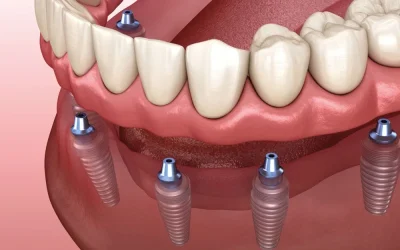Periodontology is the dental department that looks at Gum diseases. These diseases are inflammatory disorders that occur in the tissues surrounding the teeth. It has negative effects on both oral and dental health as well as general health. Failure to treat gum diseases on time brings along different problems in the long term. For example; Bad odor formation in the mouth, bleeding in the teeth, and permanent loss of some teeth are among these arising problems. In addition, diseases may be seen in the gum to foundation the ground for heart and kidney problems.
Prevent these diseases with a regular and correct oral care routine. Also, dental treatments and controls must be carried out on time to save yourself the time and energy of getting treated.
The tissues that surround and support the teeth are called gingiva. Diseases observed in these regions are called ‘periodontal diseases’.
Gums form the infrastructure of the teeth and mouth. It can be understood that the gums are healthy by the pink color gum“rose color”. Unhealthy gum patients mostly complain about redness, sensitivity, pain, and bleeding. Those who encounter these symptoms should immediately consult a periodontologist.
What Causes Gum Diseases?
The main factor that stands out among the causes of gum diseases is microbial dental plaque. Unhygined food naturally causes bacterial infection in the saliva which reveals the plaque layer. If these plaques are not removed, they damage the tissues around the teeth and gum disease begins to appear.
In addition, other risk factors can be listed as follows:
- Diabetes
- Regular alcohol intake
- Smoking
- Heart and blood pressure medications
- Anticonvulsants
- Antidepressants
- Oral contraceptives
- Leukemia
- AIDS
- Stress
- Mineral and vitamin deficiencies
- Obesity
- Oral hygiene
- adolescence period
- Menopause
- Pregnancy
- Incorrect teeth brushing
- Genetic predisposition
- Incompatible crowns or bridges
What are the Symptoms of Gum Diseases?
The most common complaint among the symptoms of gum disease is bleeding when brushing teeth or on its own.
Other symptoms are:
- swelling of the gums
- Sensitivity
- Itching
- Redness
- Soreness, tingling of the gums
- Purplish-bluish color changes
- Bad breath and bad taste in the mouth
- Gingival enlargement
- Gum recession
- Inflammatory discharges
- Separation of the gum and tooth
What is Gingivitis?
Gingivitis is a moderate kind of gum disease (periodontal disease) that causes irritation, redness, and swelling (inflammation) of the gingiva, the area of your gum that surrounds your teeth. Gingivitis should be taken seriously and treated as soon as possible.
What is Periodontitis?
A space develops between the tooth and gum. This is a called “periodontal pocket “ tissue that is found near the teeth and gums. It is often a sign of gum disease or other oral health problems. This opening allows the infection to spread more easily. Bacteria can accumulate in that area and affect the tissues around the tooth. If the disease progresses, it causes a tissue loss that helps support the tooth. The teeth may begin to shake and it may become difficult to keep them in place.
What is Tooth Sensitivity and How Does It Occur?
Tooth sensitivity is also known as ‘root sensitivity‘ or ‘dentin sensitivity. It occurs when sour, sweet, cold, hot, or very acidic foods and beverages are consumed. It also occurs in cold weather conditions.
In such cases, toothache and pain in the teeth are defined as ‘tooth sensitivity. Breakage of the dentin or enamel layers makes the wear pulp layer vulnerable to environmental factors. This results in tooth sensitivity. This disorder is frequently observed in the 20-25 age range.
Tooth sensitivity is usually caused by gum recession or gum disease. Dentin tissue exposed in the areas near the root of the tooth causes sensitization of the teeth. There is no enamel layer in the crown parts and roots of the teeth. These parts are covered with cement roots. If the cement roots are damaged or lost, the teeth begin to become sensitive.
In addition, it is possible to mention the following as causes of sensitivity in teeth:
- High abrasive content in the toothpaste
- Brushing the teeth vigorously (Excessive pressure can damage the teeth, and gums and cause sensitivity.)
- Brushing the teeth very often
- Using teeth whitening products without a doctor’s advice
- Using the wrong toothbrush
- Cracks in teeth due to trauma
- Tooth fractures
- Worn fillings that are spaced or compromised
- Incorrect restorations
- Excessive consumption of sweet foods
- Consuming beverages or foods that are too hot or too cold
- Consuming excessively acidic foods (Pickles etc.)
- Bluma disorder (This means that the person voluntarily makes oneself vomit.)
- Teeth grinding during sleep
How Teeth Sensitivity Are Treated?
- For broken teeth and deep caries, fillings and root canal treatments can be used.
- If the gums are retracted, appropriate gum treatment will be used depending on the severity of the problem. For example, you can apply a mouthguard.
- The exposed surface of the tooth intervenes.
- If hypersensitivity is caused by a broken tooth, veneers or filling treatments are used.
- If you clench your teeth when you go to bed, we recommend using a night plate.
- The wear that occurs is covered with padding.
- Your doctor may suggest that you switch to another toothpaste. He or she may prescribe an insensitive toothpaste or fluoride mouthwash.
- Brushing your teeth daily with a soft or medium bristled toothbrush will reduce sensitivity. Your dentist will inform you about the type and frequency of brushing your teeth.
- If you eat very acidic foods, you will be asked to reduce them. Also, after dental hypersensitivity, the annual examination should not be delayed to prevent a recurrence.





